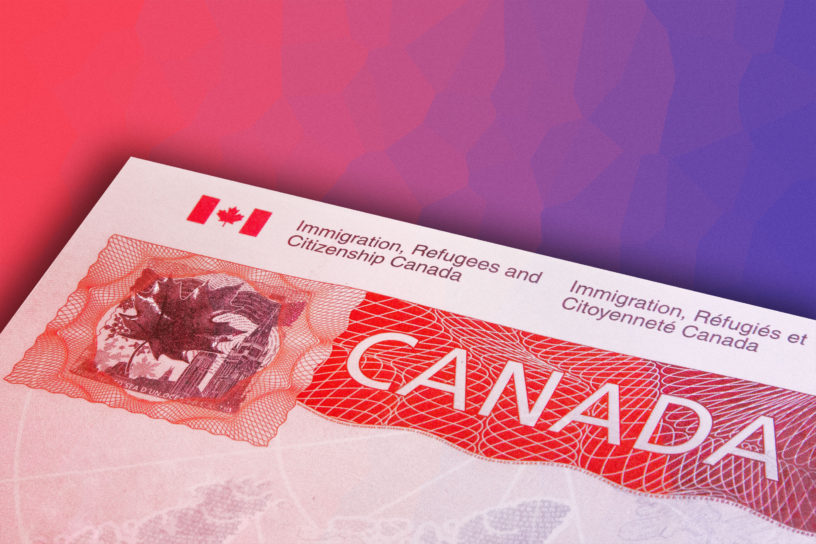By Lillie Coussée and Jerry Zhang
International students in Canada are facing uncertainty for their futures after the federal government introduced new policy changes limiting the number of hours international students can work off-campus.
This new policy came after a handful of changes to international student regulations this year, including ending full-time work hours for international students working off-campus, reducing the number of student visas by 35 per cent and restricting pathways to obtain a permanent residency (PR).
The previous temporary work policy, allowing international students to work more than 20 hours a week off-campus, ended in April 2024. In a press release that month, the Minister of Immigration, Refugee and Citizenship, Marc Miller, announced they intended to change the working hours from 20 to 24 in the fall of 2024, however, an exact date was not announced.
Anna Triandafyllidou, a sociology professor at Toronto Metropolitan University (TMU) and the Canada Excellent Research chair in migration and integration, said the new incoming 24-hour working cap is a difficult situation. She said although students may have more time to study, working limited hours in low-paying jobs is not feasible.
“I think that it’s a good thing to reduce [working hours] because study in Canada is demanding…but if [students] work 35 to 40 hours [a week], that certainly will impact [their] study,” she said.
Triandafyllidou said the government should increase the minimum wage to a livable wage if they are going to restrict the number of hours students can work per week.
Aliraza Hingwala, a fourth-year business management student at TMU, said increasing the working hours will not make a difference. He added that some jobs won’t be able to guarantee the hours needed to afford things like rent so adding four more hours would not make a big difference.
“You kind of need to have financial backing in terms of your monthly expenses,” said Hingwala. “I don’t think it would help you as a whole if you were solely dependent on work hours, there’s just no way.”
Limiting working hours also affect international students’ ability to gain opportunities to network in their fields of study, find internships and gain industry experience, said Ashika Niraula, a senior research associate in migration and integration at TMU.
“During the study period, [students] work in any jobs they can find just to be able to fulfill their everyday financial needs,” she said. “But how do they build professional networks that would help them find that employment in their field after their studies?”
Niraula said this is often overlooked by the government when making these policy decisions. She said a lack of experience in their field makes it more difficult for students to find jobs related to their degree during their post-graduation work permits (PGWP).
“I think it has kind of shaken this image of Canada as an immigrant-friendly country”
According to the new policy by the federal government, international students with PGWPs expiring in 2024 may not receive a visa extension or an invitation to apply for a PR which could force them to return to their home countries.
However, Canada has an express entry program, inviting candidates to apply for permanent residency who meet certain criteria set by the government depending on the labour markets and where they need the most work. Recently, Canada’s immigration policy has increasingly diverted its attention towards STEM fields to meet labour market demands for high-skilled jobs.
Because of this program, many international students have shifted their focus of study in hopes of securing their PR.
Hingwala said the express entry program affected his choice of study. He went into business analysis, not because he wanted to but because it is considered STEM.
“I’ve also opened up research into healthcare to see [if I] could actually enter the healthcare industry,” he said.
Niraula said that all of the recent and frequent policy changes create “tension and uncertainties,” leading students to reconsider their decision to come to Canada for school.
“I think it has kind of shaken this image of Canada as an immigrant-friendly country,” she said.
Hingwala expressed his frustration with the number of times policies and regulations for international students have changed.
“It’s quite anxiety-inducing because there’s no solid answer,” he said. “Am I even going to be able to do plan A or plan B or plan C…everything that [I] planned originally is sort of in a limbo now.”
Triandafyllidou described the current situation as a “moral panic,” explaining that international students are often blamed for complex issues like housing shortages. She said affordable housing is a problem caused by our infrastructure policy, not the immigration policy.
“It’s simply an easy answer to a complex problem,” she said.












Leave a Reply